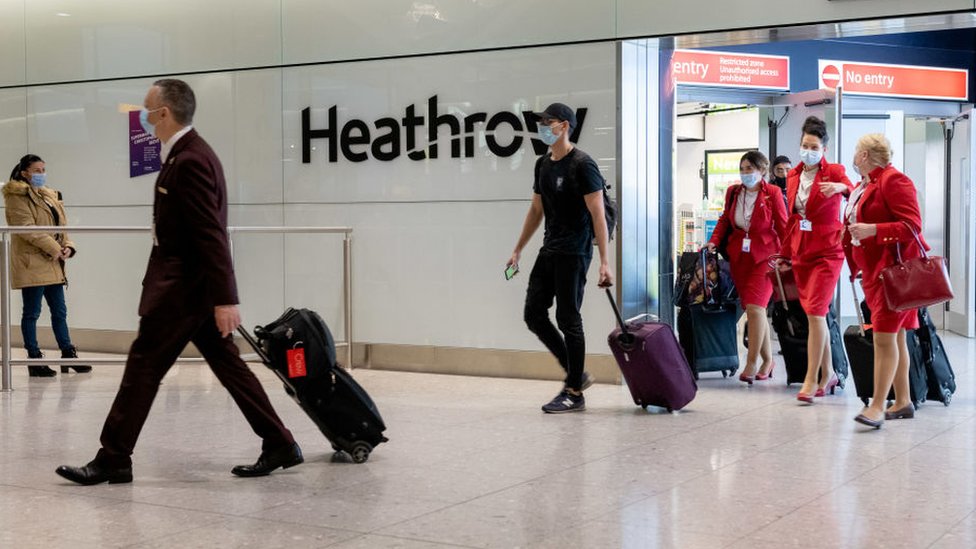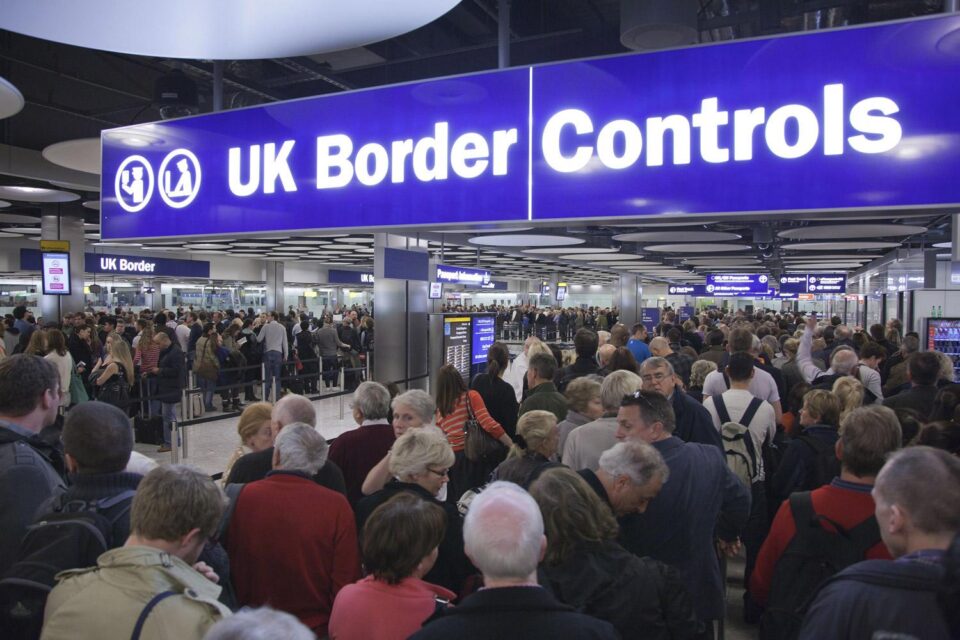All international passengers will soon have to test negative for Covid-19 before travelling to the UK.
People arriving by plane, train or boat, including UK nationals, will have to take a test up to 72 hours before leaving the country they are in.
Transport Secretary Grant Shapps said travellers “can’t board… without having that negative test”.
It will be on top of the rule to self-isolate for 10 days when arriving in the UK.
Mr Shapps said the government was “very keen to do it now” because of the new variant of the virus circulating in South Africa, which he said was “causing great concern with the scientists”.
“They’re not sure whether for example the vaccine will be able to deal with it in the first place, and we’re very, very keen to keep it out,” he told BBC Breakfast.
The new measures are expected to come into force across the UK next week, and “as soon as possible” in Scotland.
It comes after a further 1,162 deaths within 28 days of a positive test were reported in the UK – the second consecutive day of more than 1,000 recorded fatalities. There were also 52,618 new cases.
But even with the vaccines, fears about new Covid strains have led the government to take further measures regarding international travel.
Anyone who fails to comply with the new travel regulations could face an immediate £500 fine.
There will, however, be a small number of exemptions, including hauliers, children under 11, and those travelling from countries without the infrastructure to deliver tests. Arrivals from the Common Travel Area with Ireland will also be exempt.
And all passengers arriving from countries not on the government’s travel corridor list must still self-isolate for 10 days, regardless of their test result.
Mr Shapps said the rule will be UK-wide, although non-essential travel to and from Scotland and Wales is already banned.
The Welsh government said there were currently no international passengers arriving into Wales through Cardiff Airport, but “when they do, they will be subject to the same requirements as the rest of the UK”.
‘Belt and braces’ rules
Figures in the aviation industry, which has been devastated by the pandemic, acknowledged the need for the restrictions to ensure that hospitals in the UK are not overwhelmed by the pandemic.
However, they urged ministers to lift them as quickly as possible.
John Holland-Kaye, the boss of Heathrow – which has had testing facilities for months – welcomed the measures, saying “if this will help, then so be it”.
But he said it was a “really belt and braces approach”, adding: “We have always argued for pre-departure testing as an alternative to quarantine… now we’re going to have both”.
He said the measures must be temporary and the government must set out a plan of how to lift the rules.
And he also called for a “common international standard for testing” so countries had consistency, saying it was “confusing” for travellers.
Asked when he reckoned travel could return to normal, he told BBC Radio 4’s Today programme: “We are anticipating that as the vaccination starts to take effect in the UK and in other countries, we’ll see flights starting to come back and passenger numbers building up through the summer and then into the autumn.”

Tim Alderslade, the chief executive of the industry body Airlines UK, said the move should be “a short-term, emergency measure only”.
He added that “once the rollout of the vaccine accelerates, the focus must be on returning travel to normal as quickly as possible”, including “removing the need to quarantine or test”.
Labour’s shadow home secretary Nick Thomas-Symonds said the new measures were “necessary” but highlighted that the opposition party “has been calling for a comprehensive strategy on testing for international travel since April”.
It comes after England banned travellers from countries near South Africa to stop the spread of the new local Covid variant.
bbc vn




